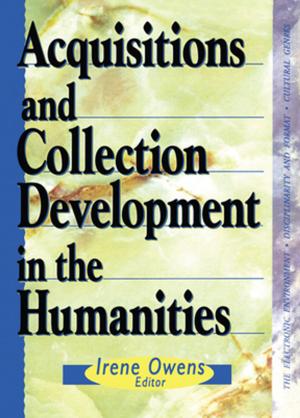Understanding and Managing Tourism Impacts
An Integrated Approach
Nonfiction, Science & Nature, Science, Earth Sciences, Geography, Social & Cultural Studies, Social Science, Human Geography| Author: | C. Michael Hall, Alan A. Lew | ISBN: | 9781135983864 |
| Publisher: | Taylor and Francis | Publication: | September 10, 2009 |
| Imprint: | Routledge | Language: | English |
| Author: | C. Michael Hall, Alan A. Lew |
| ISBN: | 9781135983864 |
| Publisher: | Taylor and Francis |
| Publication: | September 10, 2009 |
| Imprint: | Routledge |
| Language: | English |
As one of the world’s largest industries, tourism carries with it significant social, environmental, economic and political impacts. Although tourism can provide significant economic benefits for some destinations, the image of tourism as a benign and environmentally friendly industry has often been challenged. There is a clear and growing body of evidence that suggests that the effects of tourism development are far more complex than policy-makers usually suggest and that the impacts of tourism occur not just at the destination but at all stages of a tourist’s trip. Furthermore, tourism does not exist in a vacuum. Broader social and environmental changes also shape the form, growth and experience of tourism development.
This text provides a clear, accessible and up-to-date synthesis of tourism’s role in our contemporary world, both as an agent of change, and as a response to it. Tourism-related change is approached from a framework that illustrates the changing environments in which they occur, including the spatial scale of such impacts and the effects of these impacts over time. This framework is then applied to the economic, socio-cultural and physical dimensions of tourism. After examining the different forms of tourism-related impacts, the book then discusses the role of planning as part of an integrated approach to the mitigation of undesirable impacts and the maximization of the desirable benefits of tourism development. Case studies and illustrations from a variety of locations from around the world are used throughout the book to exemplify key themes and issues; additionally figures and tables serve to elucidate statistical data.
Understanding and Managing Tourism Impacts illustrates that when well managed tourism can make a positive contribution to destinations. The books use of issues of scale, time and form to illustrate the effects of tourism provide an accessible and significant reminder that tourism’s impacts vary over time and space, affects both the visitor and the host community, and can be unpredictable in its consequences. Chapter objectives, recommended readings, and links to web-based material help students, practitioners and researchers to grasp the broader implications of tourism development in today's world. With tourism increasingly being implicated as a factor in climate and environmental change, and with the benefits and costs of tourism as a form of economic development being examined more closely than ever, this book provides a timely contribution to help clarify the potentials and pitfalls of contemporary tourism.
As one of the world’s largest industries, tourism carries with it significant social, environmental, economic and political impacts. Although tourism can provide significant economic benefits for some destinations, the image of tourism as a benign and environmentally friendly industry has often been challenged. There is a clear and growing body of evidence that suggests that the effects of tourism development are far more complex than policy-makers usually suggest and that the impacts of tourism occur not just at the destination but at all stages of a tourist’s trip. Furthermore, tourism does not exist in a vacuum. Broader social and environmental changes also shape the form, growth and experience of tourism development.
This text provides a clear, accessible and up-to-date synthesis of tourism’s role in our contemporary world, both as an agent of change, and as a response to it. Tourism-related change is approached from a framework that illustrates the changing environments in which they occur, including the spatial scale of such impacts and the effects of these impacts over time. This framework is then applied to the economic, socio-cultural and physical dimensions of tourism. After examining the different forms of tourism-related impacts, the book then discusses the role of planning as part of an integrated approach to the mitigation of undesirable impacts and the maximization of the desirable benefits of tourism development. Case studies and illustrations from a variety of locations from around the world are used throughout the book to exemplify key themes and issues; additionally figures and tables serve to elucidate statistical data.
Understanding and Managing Tourism Impacts illustrates that when well managed tourism can make a positive contribution to destinations. The books use of issues of scale, time and form to illustrate the effects of tourism provide an accessible and significant reminder that tourism’s impacts vary over time and space, affects both the visitor and the host community, and can be unpredictable in its consequences. Chapter objectives, recommended readings, and links to web-based material help students, practitioners and researchers to grasp the broader implications of tourism development in today's world. With tourism increasingly being implicated as a factor in climate and environmental change, and with the benefits and costs of tourism as a form of economic development being examined more closely than ever, this book provides a timely contribution to help clarify the potentials and pitfalls of contemporary tourism.







![Cover of the book The Sociology of the Colonies [Part 1] by C. Michael Hall, Alan A. Lew](https://www.kuoky.com/images/2013/august/300x300/9781136245299-Ce8C_300x.jpg)







